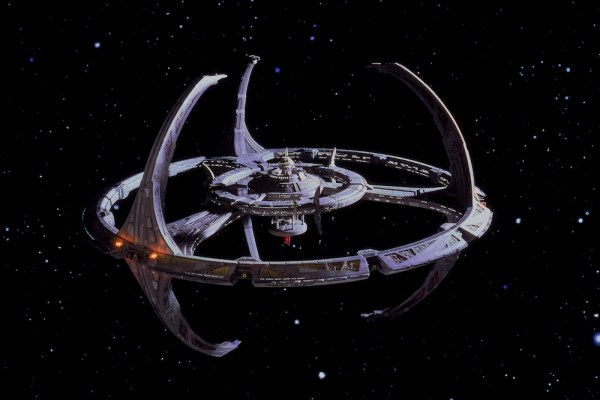When it was on the air, Deep Space Nine always seemed to be overshadowed by other Star Trek spinoffs — in the words of showrunner Ira Steven Behr, it was the “bastard stepchild” of the franchise.
After all, The Next Generation and Voyager fit more comfortably into the template established by the original series, with a starship crew having new adventures on new planets every week. DS9, on the other hand, was tied to a single location — the space station that gave the show its title — with a focus on politics, longer storylines and the seamier side of 24th century civilization.
But the things that made the show feel a bit out-of-place on ’90s TV have also made it pretty durable — The Encyclopedia of Science Fiction, for example, recently described it as “the best of the Star Trek series and one of the finest science fiction series of the last two decades.”
And now there’s documentary in the works about the making of the show. It’s being produced by 455 Films, the company behind other Trek-related documentaries like The Captains and Chaos on the Bridge, and it’s directed by Adam Nimoy, son of Spock actor Leonard Nimoy — he also created last year’s lovely and surprisingly personal For the Love of Spock (produced by 455).
DS9 fans have a chance to contribute, with What We Left Behind: Looking Back At Star Trek: Deep Space Nine currently looking to raise $148,978 on Indiegogo. The team says that many of the interviews have already been filmed, but the money will help fund additional interviews and post-production.
The documentary has enlisted Behr to produce, conduct the interviews and even lead a session with other series writers where they plot an imaginary eighth season of the show.
Behr told me that he’d actually stayed away from Trek fandom for more than a decade after Deep Space Nine ended in 1999 — not because it was a bad experience, but because he doesn’t like “living in the past.” Then he was gradually pulled back in by participating in The Captains and attending conventions.
“The best thing that happened was, I stayed away for 12 years after the show went off the air,” Behr said. “I had friends who were on the show with me who I’d see, but basically, I was not living the Star Trek franchise at all. So when I came back to it, it was all fresh and … now that they didn’t have to sit in makeup for three hours, everyone was nicer.”
Behr recalled that when the show was airing, everyone involved felt “kind of pissed off that we were the bastard stepchild,” but now he sees things differently. The fact that other spinoffs stole the spotlight meant that his team had the freedom to carve out “a nice little niche in the franchise.”
“One of the things I discovered is that new fans have flocked to the show — binging is great for Deep Space Nine,” he said. “A lot of the rules that applied when we were on the air about what made a Star Trek episode a Star Trek episode, new fans don’t give a goddamn about. All they want to know is, do they like it or not like it, not whether Gene Roddenberry would have done it that way. The fans now have that freedom to accept the series for itself.”
And even though DS9 has a reputation as the “darker” Star Trek, Behr noted that it still offers “a completely optimistic view of the 24th century — probably a way more optimistic view than it deserves, the way the planet is going.”
Of course, this is all happening as CBS prepares to launch the first new Trek TV series in a decade, Star Trek Discovery. Behr is presumably busy with his work as a writer and executive producer on Outlander (developed by fellow Deep Space Nine vet Ron Moore), but would he have any interest in contributing?
“I hate ever saying no definitively … but it’s not in the front of my brain,” Behr said. “If this is my contribution or my time at the Star Trek franchise, I am more than happy with it.”
